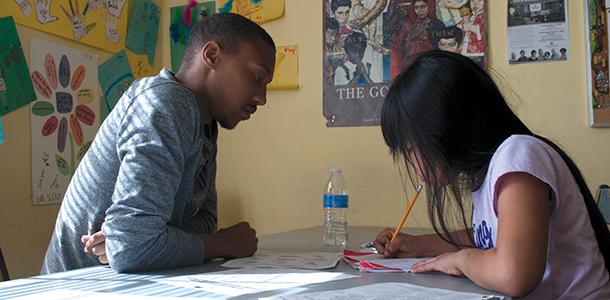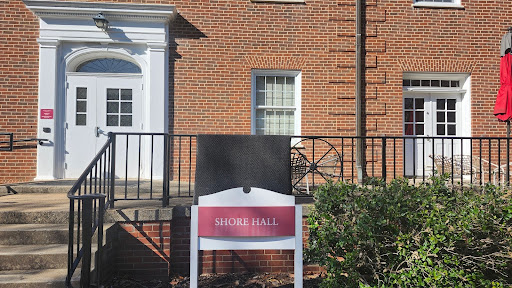In 2013, members of the Guilford College community organized the year of consent to bring awareness to sexual assault on campus.
The year after that, 50 Guilfordians joined the People’s Climate March in New York City to demand government action on climate change.
Last semester, students brought Black Lives Matter founder Patrisse Cullors to campus and stood in solidarity with the students at the University of Missouri.
In the three years I have been at Guilford, there have been many examples of powerful campus activism. In those same three years, however, I have also seen far too many examples of passivity.
Many students come to Guilford because of its commitment to social justice. But part of social justice is activism, and many students aren’t willing to give up a weekend to go to D.C. or even a night to watch a documentary about race in North Carolina.
Learning about human rights in a class is important, but unless we act on those lessons, nothing will change.
One example of this is voting. We talk about how laws like House Bill 2 and policies like gerrymandering are harmful and perpetuate violence, but how many Guilford students actually voted in the primaries to change that?
Guilford students like to talk about what we would like to change in the world but not enough of us go out and act on it.
Additionally, for students who don’t take classes about social justice, this may be the only way they will be introduced to activism and the issues our community faces.
Often, students claim to have too little time to be advocates for causes they care about. Although homework is important, time management can help students afford to take a weekend off for a protest or even a few hours to visit a tutoring site off campus.
Students also claim not to know enough about a topic to be active. What better way to learn than to ask peers already doing activist work?
As college students, we are in a position of a lot of privilege. Because of this, it is up to us to organize, to raise others up and to make strides to create a more just community.
One other way in which students can be more active is reaching out to the Bonner Center, which does community activism on campus and in Greensboro. There are 60 Bonner scholars on campus who each do 140 hours of service every semester.
Some of the things students who volunteer through Bonner do include tutoring refugee students and working with people experiencing homelessness downtown.
The Bonner House is located next to Dana Auditorium.
Many of the students the Bonner Center works with go off to college and oftentimes even come to Guilford. Students that work with people experiencing homelessness are often able to help them get clothing, jobs or housing.
Joining organizations on campus like Integrity for Guilford and Deconstructing Whiteness are also ways in which students can be active on campus. Both groups deal with racism and white supremacy. These groups meet regularly on campus.
It is important to note that students should not be the only ones to change the culture of activism on campus. Many administrators, staff persons and faculty members also need to.
When students went to the student budget committee a few weeks ago, they weren’t able to attain funds for Democracy Spring, where students are protesting in Washington, D.C., this weekend to get money out of politics.
When students tried to get Patrisse Cullors to campus, many were disappointed by the lack of enthusiasm or support from some of the staff and administrators.
It should not be up to just a few students to change the world. If we really care about the world, we should be enabled to take steps to help it.
Instead of complaining about injustices, we need to act against them.














